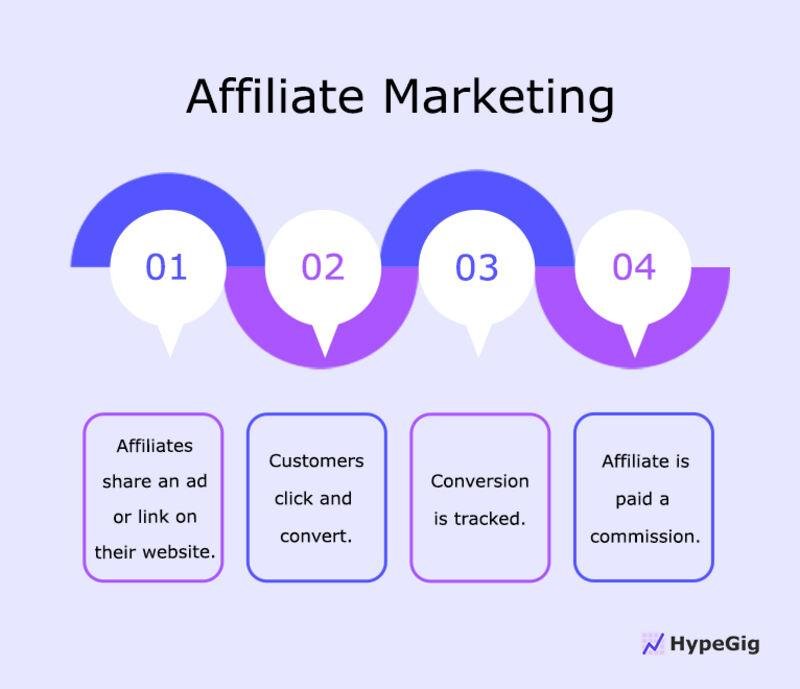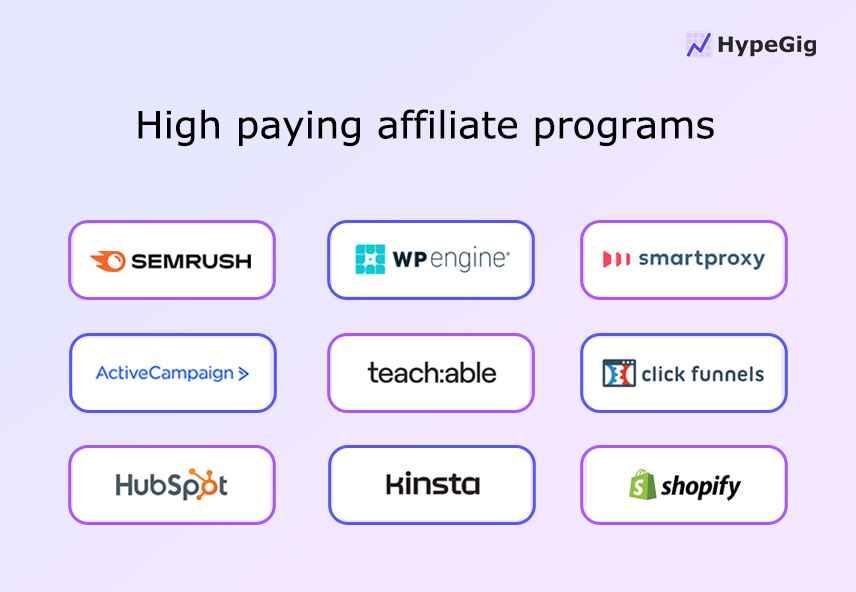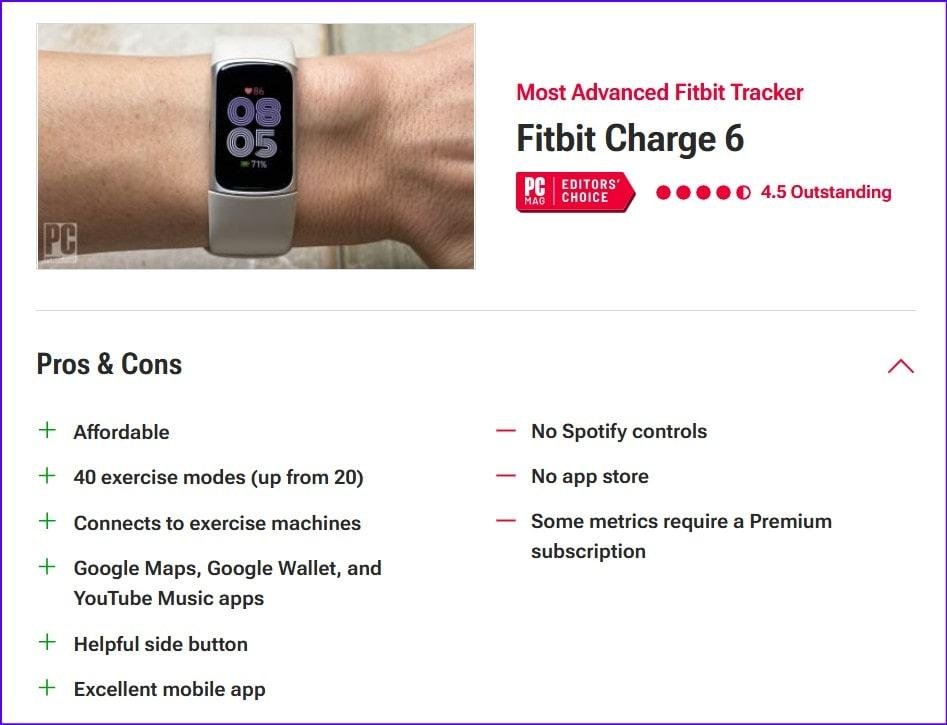Have you ever wondered how some people earn money while lounging at home, sharing links online? That’s the magic of affiliate marketing.
It’s a popular way for beginners to earn online income without needing to create their own products. Instead, you promote someone else’s product and earn a commission for every sale made through your referral.
It sounds simple, but affiliate marketing for beginners can feel overwhelming with so much information out there.
This guide will help you navigate the essential steps and strategies to start affiliate marketing. Let’s explore how you can turn your online presence into a source of income!
Disclaimer: If you buy any products through links on this site, I may earn a commission. But it doesn't make any difference to your cost, and it helps me keep this blog running. So you could always read my articles for free.
What is affiliate marketing?
Affiliate marketing is a way for you to earn income by promoting products or services from other companies.
It works like this: you share a unique link (often called an affiliate link) that tracks any sales made through your recommendation. When someone clicks your affiliate link and makes a purchase, you earn a commission—typically a percentage of the sale.
For beginners, it’s a great entry point into online income, especially since you don’t need to create your own products.
Take Amazon Associates as an example. The program offers a wide range of products, and you can earn about 1% to 10% of each sale, depending on the category. If you promote a $100 kitchen gadget, you might make between $1 and $10 from that sale.
I’ve seen affiliates successfully use platforms like Instagram or blogs to share their affiliate links. For instance, you can build a food blog and partner with companies like Blue Apron and Thrive Market to start affiliate marketing.
By sharing recipes and links to their meal kits or organic groceries, you can earn a nice side income.
While it might seem overwhelming at first with all the choices and strategies, starting with a niche you’re passionate about can make the process enjoyable.
If you keep your focus on building genuine connections with your audience, affiliate marketing can become a rewarding venture.
How affiliate marketing works
Affiliate marketing operates on a straightforward model that involves three main players: you (the affiliate), the company (the merchant), and the consumer. Here’s how it works:

First, you join an affiliate program, like the one offered by ShareASale or CJ Affiliate. Once you’re accepted, you’ll receive unique affiliate links for the products or services you want to promote. These links contain tracking codes that identify you as the referrer.
Next, you share these links through your blog, social media, or email newsletters. For example, if you write a tech blog, you could start affiliate marketing by promoting products from brands like Apple or Best Buy. When a reader clicks one of your links and buys the product, the affiliate program tracks the sale and generates a commission for you. The typical commission you get can range from 5% to 30%, depending on the product category.
For instance, some bloggers in the fitness niche promote supplements or workout gear and can earn up to $150 for each sale from companies like Bodybuilding.com or MyProtein.
It’s essential to create content that genuinely interests your audience to build engagement and encourage clicks on your affiliate links.
By developing strong relationships with your readers, you can steadily grow your affiliate income over time. Remember, it’s about providing value while sharing your recommendations.
How much can you earn with affiliate marketing?
The amount of money you can make varies with changes in several factors, including your niche, audience size, and the effort you put in.
For beginners in affiliate marketing, it’s important to understand that while some may earn just a few dollars each month, others can make it a substantial income source.
To give you a sense of scale, many affiliates earn commissions ranging from 5% to 30%. For instance, if you promote a high-ticket item, say a $1,000 course from Udemy, and earn a 20% commission, that’s a cool $200 for just one sale.
Achieving only five sales a month puts you at $1,000, and with the right strategy, that’s quite achievable.
Those who focus on specific niches, like beauty or tech, often see more success when they start affiliate marketing. For example, a beauty blogger promoting products from Sephora can earn around 10% per sale. If she drives traffic to a $50 palette, that’s $5 in her pocket for each purchase.
Ultimately, diligence and authenticity matter. Building trustworthy relationships with your audience will take time, but once you do, the earning potential can grow.
Some super affiliates even make over $100,000 a year, though that typically comes from years of experience and strategic planning. Start small, stay consistent, and you might be surprised by how much you can earn over time.
How to start affiliate marketing
Affiliate marketing is suitable for beginners because you don’t have to create your own product or service. You can earn money by leveraging existing products and your influence online. Here’s how to start affiliate marketing for beginners.
Understand common terms
To get started, familiarize yourself with common terms, such as:
– Affiliate link: A unique URL assigned to you that tracks sales back to your promotion.
– Commission: The percentage value you earn from each sale made through your affiliate link.
– Niche: A specific area of interest you’ll focus on for your promotions, like beauty, technology, or fitness.
To learn more, read this post on affiliate marketing glossary.
Choose your niche
Picking the right niche is important. A niche that reflects your interests or expertise will make it easier for you to create content and connect with your audience.
For example, if you are passionate about fitness, you could start affiliate marketing by promoting gym equipment, workout programs, or supplements.

When choosing a niche as a beginner in affiliate marketing, consider the following:
Passion: Pick something you genuinely enjoy. For example, if you’re a fitness enthusiast promoting fitness-related products, you’re more likely to stay motivated and engage with your audience genuinely.
Market demand: Research popular niches. You can use a tool like Google Trends to identify what people are currently interested in.
Monetization potential: Evaluate the affiliate programs available in your niche. Sites like ClickBank and ShareASale have a variety of affiliate programs focused on different products.
Related: Best affiliate marketing niche ideas
Research affiliate programs
Once you’ve selected your niche, it’s time to find affiliate programs. There are numerous platforms and individual company programs to choose from.

Here’s how to go about it:
Affiliate networks: Consider joining networks like Amazon Associates, Rakuten, or Impact. These networks have hundreds of companies to choose from, making it easy to find products within your niche.
Direct partnerships: Some brands have their own affiliate programs, such as Adidas or Apple. You can usually find information at the bottom of their website under “Affiliate Program” or “Partners.”
Commission structure: Before you start affiliate marketing, look for programs with favorable commission rates. Programs like Bluehost offer a flat commission of $65 per sale, while cosmetics companies often have around 10% commissions.
For more information, check out this guide on finding the right affiliate marketing program.
Build your online presence
To effectively promote affiliate products, you need a platform where you can build your audience. Here are some options:
Blog: Launching a blog is a popular choice for generating affiliate income. Beginners in affiliate marketing can utilize platforms like WordPress or Wix to create their site. Then, post valuable content that aligns with your niche, such as product reviews or tutorials.
YouTube: If you enjoy creating video content, consider starting a YouTube channel. You can showcase products, provide tutorials, or share your experiences.
Social media: Platforms like Instagram and TikTok can be great for influencers in niches like fashion, beauty, or cooking. Use engaging content to connect with your followers and share your affiliate links.
Create valuable content
Once you have your platform set up, you’ll want to focus on developing high-quality content that resonates with your audience. This could include:
Product reviews: Provide honest opinions and experiences about products. Make it informative and detailed. For example, if you review a fitness tracker, discuss its pros, cons, and who it would be best suited for.

Guides and tutorials: Create content that helps your audience solve a problem. If your niche is cooking, you could write a guide on “The best kitchen gadgets for beginners.”
For more details, check out this guide on building affiliate marketing content.
Drive traffic to your content
Getting traffic to your content is crucial to generating sales through your affiliate links. Here are practical steps to consider in affiliate marketing for beginners:
Social media marketing: Post your content on social media platforms depending on where your target audience hangs out. Also, use relevant hashtags and engage with users to grow your following.
Email marketing: In this approach, you build an email list by offering something valuable, such as a free e-book or exclusive tips. Use platforms like Mailchimp to manage your email campaigns effectively.
Paid advertising: If budget allows, consider using paid ads on platforms like Facebook or Google Ads to drive targeted traffic. Start small to see what works before scaling up.
SEO: Implement basic Search Engine Optimization (SEO) strategies to help your content get more exposure in search engines. Use tools like Yoast SEO for WordPress to optimize your content easily.
Monitor performance and optimize
After you’ve started promoting products, it’s crucial to monitor your performance and make adjustments. Here’s how you can implement this as a beginner in affiliate marketing:
Track clicks and sales: Use analytics tools, like Google Analytics, to track your website traffic and see which content drives the most sales. Most affiliate programs also provide dashboards to track your commissions.
A/B testing: Experiment with and test different types of campaigns and content to see what resonates best with your audience. You might find that certain product reviews convert better than others.
Engage with your audience: Solicit feedback from your followers to improve your content. Understanding their requirements can help you tailor your promotions effectively.
Final thoughts on affiliate marketing for beginners
Starting affiliate marketing from scratch may seem daunting, but by taking these steps and staying consistent, you’ll build a path toward success.
Focus on creating valuable content, engaging with your audience, and continually optimizing your efforts, and you may be surprised at how much you can achieve.
Did I miss anything? Did you try these tips on affiliate marketing for beginners? Do you have any questions or comments? Share your thoughts below in the comments section.





